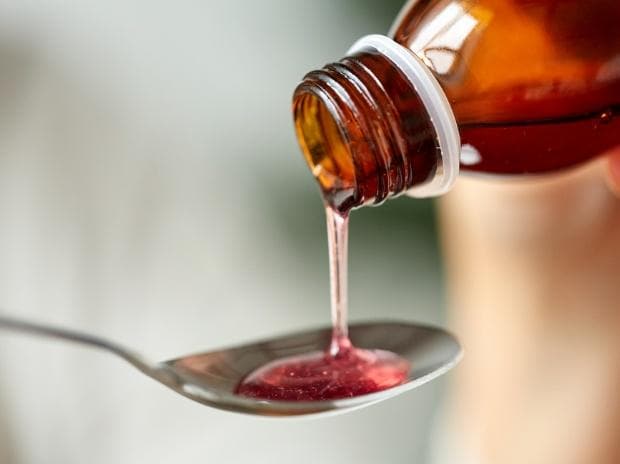A team of drug inspectors from the Centre and the Food Safety and Drug Administration (FSDA) of Uttar Pradesh (UP) visited the Noida facility of Marion Biotech and sent samples for testing. This comes in the aftermath of drug exports from India coming under fire again, with Uzbekistan reporting deaths of 18 children allegedly linked to syrup and tablet consumption of Marion Biotech’s cold medication. Uzbekistan has initiated legal action against the company.
Union Health Minister Mansukh Mandaviya said in a series of tweets that the Central Drugs Standard Control Organisation (CDSCO) has been in regular contact with the national drug regulator of Uzbekistan since December 27 concerning ‘contaminated’ cough syrups made by the Noida-based health care and wellness company.
“Immediately on receipt of information, a joint inspection of Marion Biotech’s Noida facility was carried out by UP FSDA and the CDSCO. Further action as appropriate will be initiated based on inspection report,” said Mandaviya, adding that the samples of the cough syrup have been taken from the manufacturing premises and sent to the Regional Drugs Testing Laboratory in Chandigarh for further evaluation.
In a statement, the Union health ministry said there have been reports from Uzbekistan concerning contaminated cough syrup Dok-1 Max made by Marion Biotech.
It added that under the directions of the health minister, the CDSCO is in touch with the national drug regulator of Uzbekistan.
The Ministry of External Affairs (MEA) said on Thursday that consular assistance is being provided to some linked to the company facing legal action in the Central Asian country.
News agency PTI quoted MEA Spokesperson Arindam Bagchi that “while the Uzbek authorities have not formally taken up the matter with New Delhi, nevertheless, our embassy has contacted the Uzbek side and is seeking further details of their investigation. We understand that legal action has been initiated by the Uzbek authorities against some people, including the local representative of the company there. And in that context, we are extending necessary consular assistance to those individual(s)”.
Meanwhile, a spokesperson for World Health Organization (WHO) told Business Standard that “WHO is in contact with health authorities in Uzbekistan and is ready to assist in further investigations”.
According to news agency ANI, Marion Biotech has halted the production of Dok-1 Max.
“We regret the deaths. The government is conducting an enquiry. We’ll take action as indicated by the report,” Hasan Harris, a legal representative of Marion Biotech, told the news agency.
Uzbekistan’s health ministry has said that samples of Dok-1 Max contained ethylene glycol. Dok-1 Max syrup and tablets are used as anti-cold medication.
Ethylene glycol is toxic if found in medicines. This chemical is found in industrial-grade glycerine and is not permitted for medicinal use. Consuming ethylene glycol can lead to convulsions, renal failure, and affect the circulatory system.
Marion Biotech holds a license for manufacturing Dok-1 Max syrup and tablets for export purposes granted by UP’s drug controller.
Uzbekistan’s allegation comes within months of the Gambia development where WHO observed that the four cough syrups manufactured by Haryana based-Maiden Pharmaceuticals (Maiden Pharma) – namely Promethazine Oral Solution, Kofexmalin Baby Cough Syrup, MaKOFF Baby Cough Syrup, and MaGrip N Cold Syrup – were contaminated, leading to the deaths of 70 children in the West African nation. The Indian regulators stopped production at Maiden Pharma’s Sonipat site and collected samples.
Earlier this month the Drugs Controller General of India V G Somani said that the samples were not found to be contaminated and wrote a strongly-worded letter to Rogério Gaspar, director (regulation and prequalification) at WHO, saying the international public health agency inferred a ‘premature’ causal link between the deaths in Gambia and the four India-made cough syrups, causing irreparable damage to the supply chain “over an assumption that has not been substantiated by the WHO or its partners on the ground”.
The WHO, however, stood by its action and said that its contracted laboratories in Ghana and Switzerland tested the suspected cough syrups products from Gambia and confirmed excess levels of ethylene glycol and diethylene glycol.
Maiden Pharma’s plant is yet to resume operations as it was found to be in non-compliance with the good manufacturing practices by the Indian drug regulator.
The CDSCO has started conducting inspections of identified drug manufacturing units jointly with state authorities across India. The idea of the joint inspections is to ensure the safety, efficacy, and quality of drugs available in the country, the Union Ministry of Health said on Tuesday.
A committee of two joint drug controllers has been constituted at the CDSCO headquarters to monitor the process of inspection, reporting, and subsequent action to ensure compliance with the Drugs and Cosmetics Act, 1940, and Rules, 1945, the statement said. This will ensure high standards of quality compliance for drugs manufactured in the country, it added.
Note:- (Not all news on the site expresses the point of view of the site, but we transmit this news automatically and translate it through programmatic technology on the site and not from a human editor. The content is auto-generated from a syndicated feed.))




Hey there would you mind sharing which blog platform you’re using?
I’m looking to start my own blog soon but I’m having a tough time selecting between BlogEngine/Wordpress/B2evolution and Drupal.
The reason I ask is because your layout seems different then most blogs and I’m looking for something completely unique.
P.S My apologies for being off-topic but I had to ask!
What’s up mates, its great post about educationand entirely explained,
keep it up all the time.
I’m really loving the theme/design of your website.
Do you ever run into any web browser compatibility issues?
A few of my blog visitors have complained about my site not operating correctly in Explorer but looks great in Firefox.
Do you have any advice to help fix this problem?
You need to be a part of a contest for one of the most useful blogs on the
net. I’m going to recommend this blog!